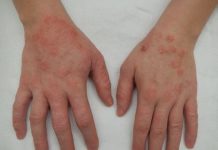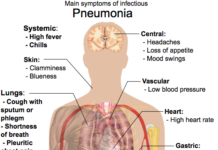by Isaac Carter and Alexandria Goode; Farnsley Middle School (Louisville, KY)
Teacher: Marsha Buerger
Alexandria Goode, age 12, the co-author, has always noticed that she acts differently from other kids her age in social situations.
“I knew something was wrong when I started to get anxiety at the thought of being at the front of the class. I would get scared before making a simple phone call, and I would even cry the night before a big group project,” she states.

She began to feel abnormal when it came to public situations, and felt as if she had a problem. She looked into the different kinds of disorders and found several that could explain her feelings. One of these is Avoidant Personality Disorder.
According to the National Institute of Mental Health, Avoidant Personality Disorder (AvPD) affects 5.2% of the adult population in the U.S. Even though everyone experiences insecure feelings, people with AvPD experience them in extremes. People with AvPD typically have a very fearful, timid, or tense demeanor and are often subjected to ridicule from others, which makes their self-doubts even worse.
An article by Steve Bressert Ph.D., formerly from the American Psychiatric Association, on psychcentral.com, states that the symptoms of AvPD include a pattern of feelings of insufficiency, severe sensitivity to other people’s opinions, lots of social inhibitions, and holding themselves back in relationships. Other symptoms include avoiding most activities that involve significant social contact because of the fear of criticism or disapproval, being unwilling to meet new people unless they are certain they will be liked, and showing restraint with sharing feelings in relationships because of the fear of being ridiculed. They may also be preoccupied with possibly being criticized and rejected, and viewing oneself as unappealing. Along with being reluctant to participate in activities that may prove to be embarrassing.
AvPD usually becomes evident around early adulthood, which is when people are normally diagnosed. It is unusual to be diagnosed in childhood or teen years, because children are ever changing. But if a child is diagnosed, the symptoms need to have been around for a year or more.
Treatments for AvPD, according to Wikipedia, are cognitive therapy, social skill training, exposure treatment in order to gradually increase social contacts, group therapy for practicing social skills, and sometimes drug therapy. Talk therapy is also crucial in treatment, either with a person the patient trusts or with a therapist. The most important thing for the person with AvPD is to challenge their exaggerated negative beliefs about themselves. Improvement is possible with the help of treatment and effort from the patient.
Alexandria exhibits many of the symptoms of AvPD, but has not been diagnosed yet. She realizes that a doctor would need to diagnose her in order to receive proper treatment.
“I still feel a lot of anxiety in social situations, but after talking about my feelings with some trusted people in my life, I feel better about social situations now,” she says.













